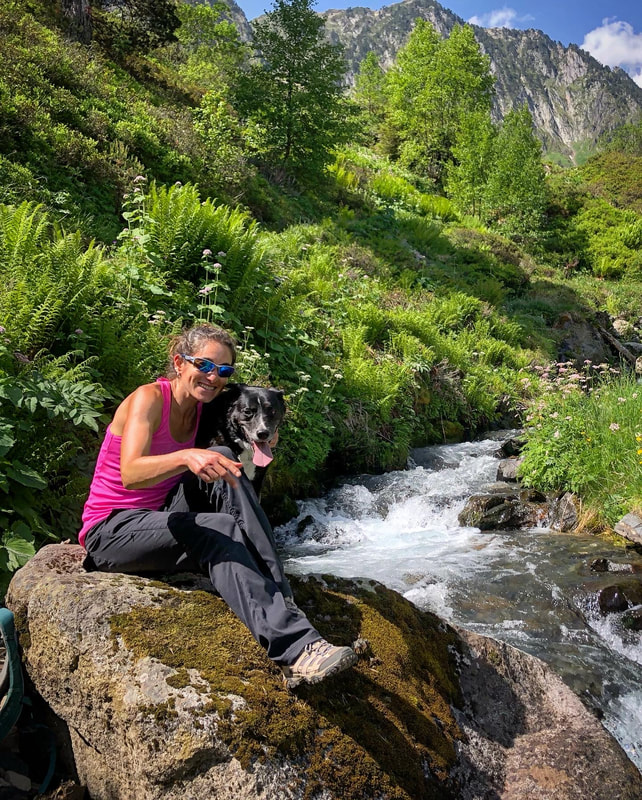To me, ecohydrology is the study of how ecosystems (specifically soil and vegetation) and the water cycle interact and modify one another. As others have said, it is an interdisciplinary area of research that includes atmospheric science, plant physiology, soil science, etc. For my work, I have also focused on how ecohydrology interacts with our global carbon cycle, and its ties to anthropogenic climate change.
What are your undergraduate and graduate degrees in?
My undergraduate degree was from Tufts University in Civil Engineering. Then I have a MS, MPhil, and PhD from Columbia University in Earth and Environmental Engineering.
How did you arrive at working in/thinking about ecohydrology?
I have always enjoyed being in nature and the outdoors, and I learned from a young age the importance of protecting our planet. As I grew up, I also became aware of threats to the places I loved caused by deforestation and anthropogenically caused climate change.
Ecohydrology seemed like an obvious career choice for me, because it has allowed me to combine my passion for protecting the environment with the tools and problem-solving skills to do just that. It is still unclear if many ecosystems will be able to adapt and/or acclimate to a changing climate. In turn, it is also unclear how the responses of ecosystems to climate change will then feed-back on our carbon and water cycles. These are the sorts of research topics that I explore in my work. In doing so, I am contributing to improving our ability to understand and model these changes, giving us the opportunity to develop the best climate mitigation and policy to protect people and the environment.
What do you see as an important emerging area of ecohydrology?
An emerging area is the use of new and improved remote sensing and reanalysis products to monitor vegetation status and diagnose water stress. The number of products available is increasing, while the temporal and spatial resolutions available are becoming finer. Meanwhile, reanalysis products are also being improved with time records continuously extending allowing for more robust studies. These products are expanding our capabilities to understand and monitor the interactions between ecosystems and the hydrologic cycle. I think that there is great potential for increasing our ability to understand our natural world with these new and improved products.
Do you have a favorite ecohydrology paper? Describe/explain.
One of the papers that I enjoyed reading was “Examining the evidence for decoupling between photosynthesis and transpiration during heat extremes”. In this paper they discuss several observational studies that demonstrated decoupling between plant photosynthesis and transpiration during heat extremes—that is, while photosynthesis was observed to decrease in high temperatures, transpiration was observed to either be sustained or increased. From there, they tested whether they could detect the same decoupling at the canopy scale using flux tower data.
While the study results were not entirely conclusive, I enjoyed the paper for two reasons—firstly, it highlights the importance and some of the struggle between scaling between leaf and canopy scale, which is so important in the field of ecohydrology. Secondly, because it is just one example of how unique certain types of vegetation are, and really just how interesting different plant behavior can be (most plants decrease their transpiration rates as photosynthesis declines, at least at the same air dryness)! I found this plant response to heat somewhat counterintuitive, but in a way, it also made so much sense. Anyway, the paper left me thinking just how cool plants really are—and also how important it is for scientists to have an understanding of ecohydrology across spatial and temporal scales to really understand the whole story.
What do you do for fun (apart from ecohydrology)?
I’m a big road cyclist, outdoors enthusiast, and I love to travel and explore new places. A perfect vacation for me would involve long bike rides, hiking in the mountains, and exploring new cities. Also, seeing family and friends is always great.

 RSS Feed
RSS Feed